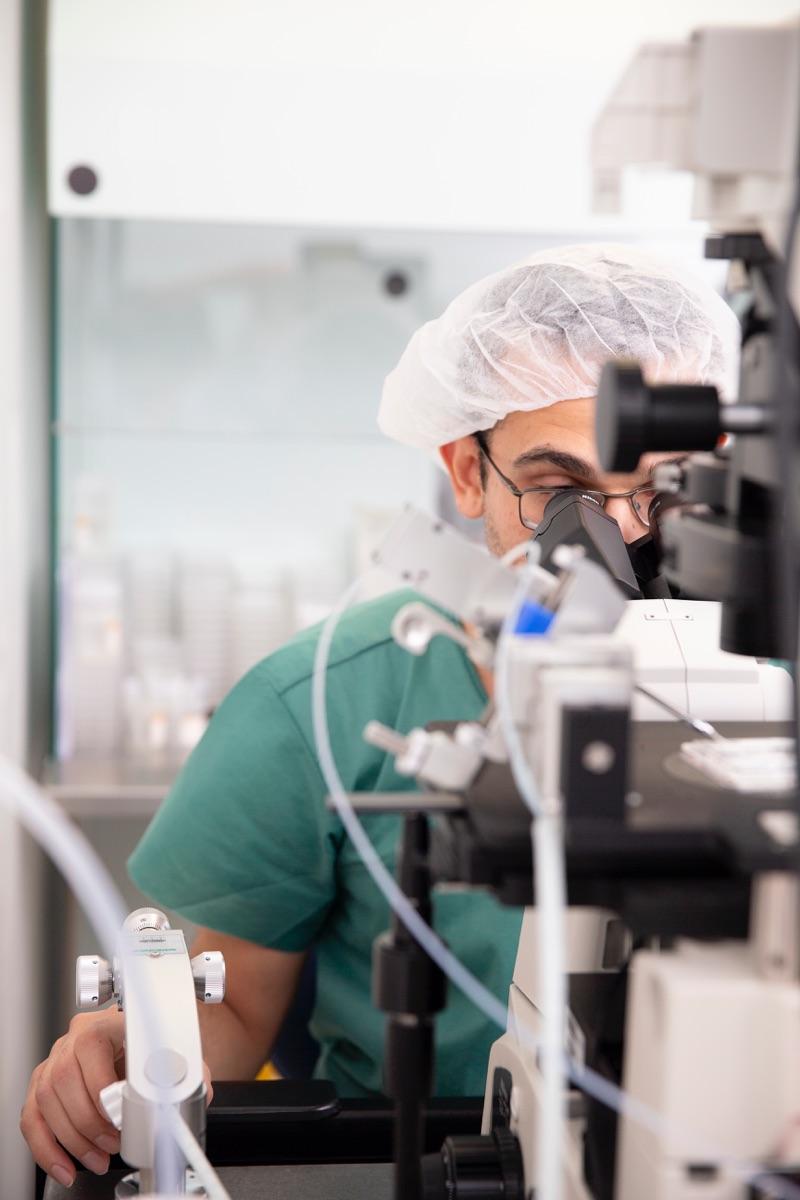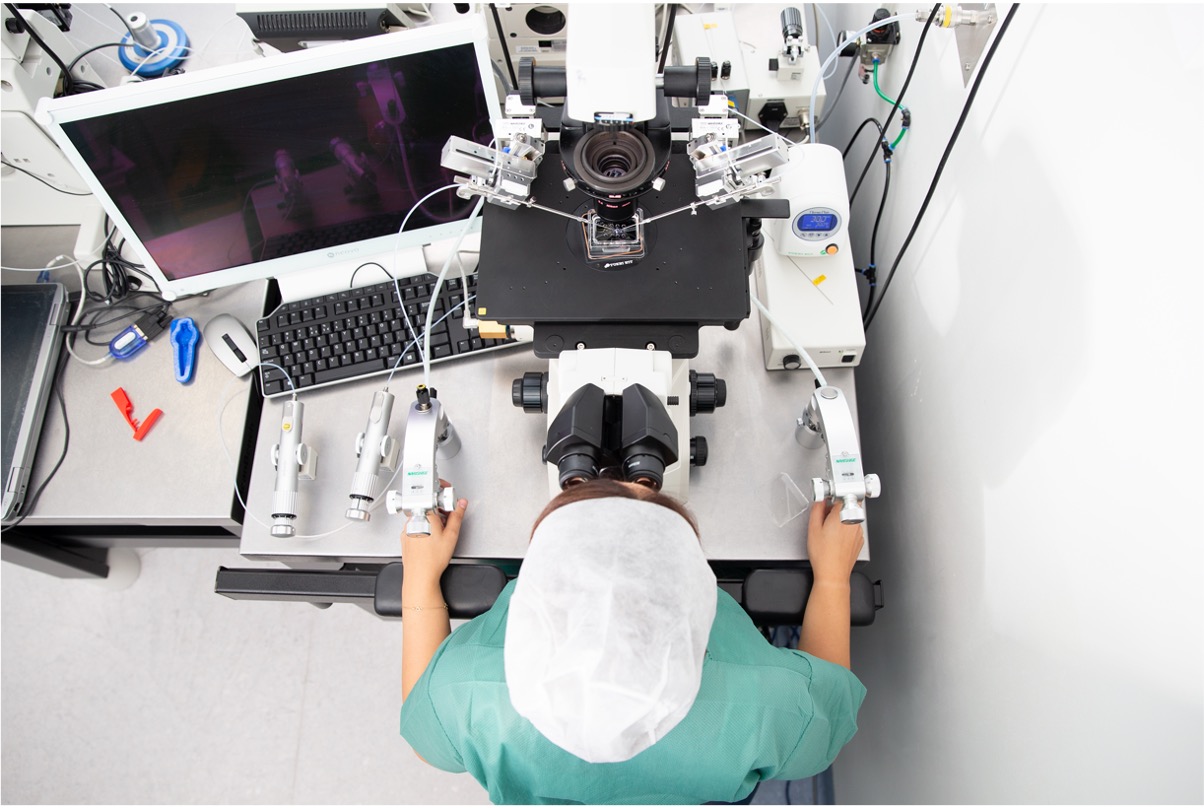Choosing the right fertility clinic is vital to the successful outcome of a healthy baby. Not all embryologists are made equal and their skill, education, years of experience, and expertise can have a significant impact on the success of fertility treatment, making your choice of fertility clinic critically important. A high-quality team and laboratory can have a significant impact on your chances of success in an IVF cycle.
A short summary of an embryologist’s role includes egg collection, selecting the right sperm, inseminating the oocytes (or eggs), growing the embryos, biopsy for PGS or PGD, embryo grading, preparing the embryos for transfer, and cryopreservation. If an embryologist fails in any of these extremely delicate tasks, your cycle is likely over as there is no margin for error.
The embryology lab at Westmead Fertility Centre is awe-inspiring and furnished with highly advanced equipment. But, it’s our talented and dedicated embryologists who wield the technology that determines our success rates. Our laboratory and high-tech equipment would be of no use without these gifted men and women.
The embryologists at Westmead Fertility Centre
At Westmead Fertility Centre, we have a team of passionate and dedicated scientists in our state-of-the-art laboratories. When deciding where to have treatment it’s important you consider the education, training and years of experience of all members of staff. The overall outcome of an IVF cycle can be dictated by the skill and work of the embryologists.
We feel so passionate about the importance of education and professional development that all of our embryologists have a higher or postgraduate degree, such as a Masters or a PhD. Our team keep up with new advances through regular on-going professional development, reading publications, and attending Australian or international industry conferences. The extensive training our team undergoes is essential so that our embryologists know how to create the ideal conditions most conducive for your embryos to flourish.
Giving your embryos the best possible chance
An embryologist is essentially your baby’s first doctor. Due to the incredible amount of human intervention required, it’s essential that only the most experienced team are handling your gametes. Some of the critical questions you should be prepared to ask your clinic about their embryologists include:
- Education: The embryologists who handle your gametes (oocytes and sperm) and embryos should be well-trained and experienced professionals. Assisted reproductive technologies, such as IVF and ICSI are sensitive procedures that require the highest level of expertise. Ask about the training and experience of the Embryologists – do they have a Masters as a minimum?
- Years of experience: Additional skills come with experience. Ask your clinic how many years of experience each of their embryologists has.
- Communication between the embryologist and fertility specialist: Ask your clinic if an embryologist can make a decision on IVF or ICSI – the answer should be ‘yes’ to ensure you are receiving individualised treatment options. Open communication and respect between the fertility specialist and the embryologist is crucial for success.
- Commitment to research: Ask your clinic if the embryologists conduct ongoing research. You want to ensure the embryologists are committed to refining and continually developing the techniques and the best chance of success for their patients. If there is no commitment to research then techniques can become stale and out-dated.
- Staffing numbers: Ask your clinic how many embryologists they have and determine if they have technicians. You need to ensure your clinic has the expertise you require for the best chance of success.
- Commitment to ongoing professional development: Ask your clinic if their embryologists take part in ongoing professional development. You should ensure your clinic is committed to continuous learning, improvement and development in order to provide you with the best chances of success.
All content should be considered as opinion only. Always seek the direct advice of your doctor in connection with any questions or issues you may have.
Read more research on our blog.




